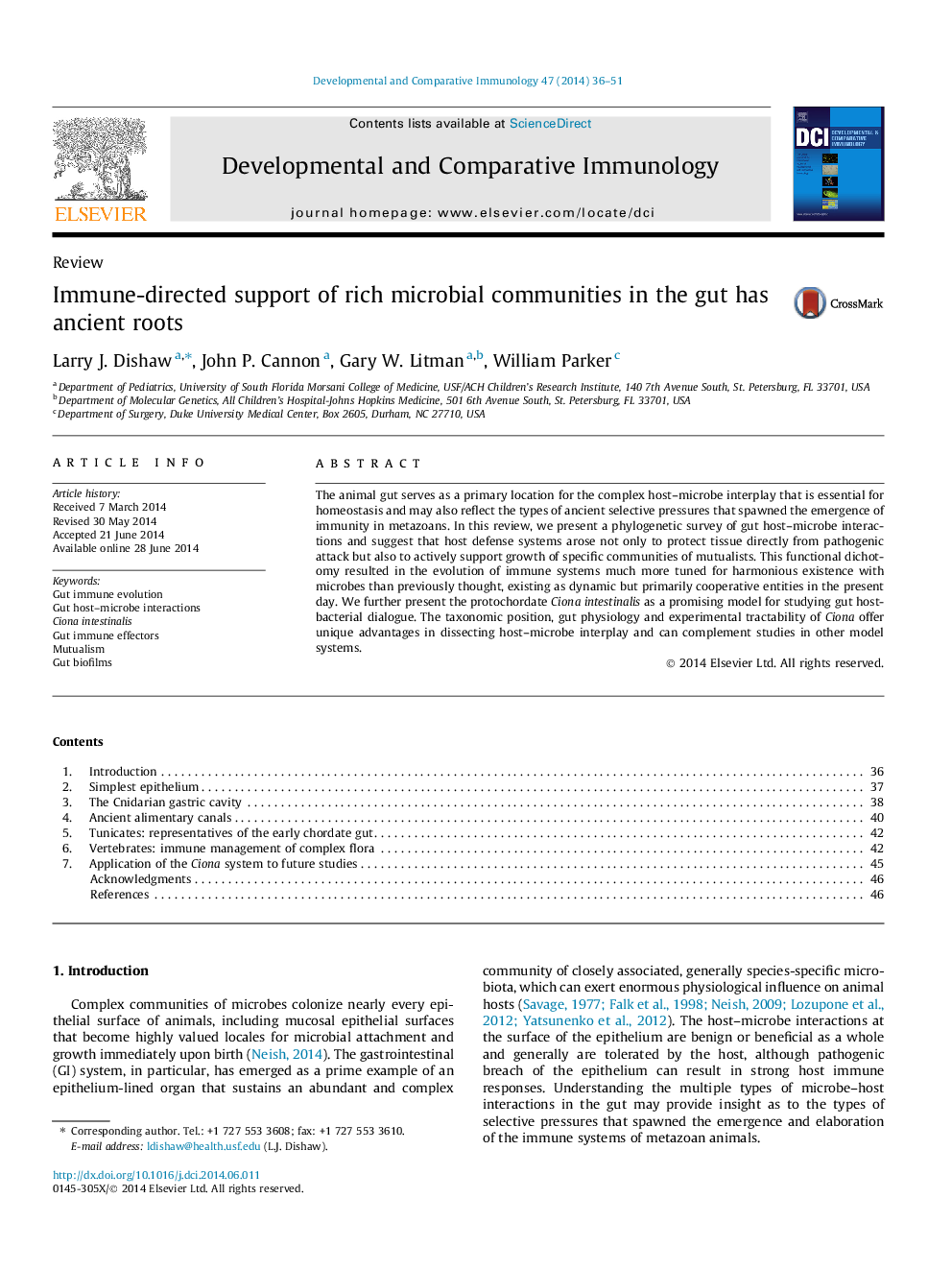| Article ID | Journal | Published Year | Pages | File Type |
|---|---|---|---|---|
| 2429107 | Developmental & Comparative Immunology | 2014 | 16 Pages |
•We review the evolution of host–microbe dialog in the gut.•We review the role of host immunity in recognition of gut microbes.•We provide evidence that host immunity supports the growth of gut bacteria.•We argue that Ciona intestinalis is a viable model in studies of gut homeostasis.
The animal gut serves as a primary location for the complex host–microbe interplay that is essential for homeostasis and may also reflect the types of ancient selective pressures that spawned the emergence of immunity in metazoans. In this review, we present a phylogenetic survey of gut host–microbe interactions and suggest that host defense systems arose not only to protect tissue directly from pathogenic attack but also to actively support growth of specific communities of mutualists. This functional dichotomy resulted in the evolution of immune systems much more tuned for harmonious existence with microbes than previously thought, existing as dynamic but primarily cooperative entities in the present day. We further present the protochordate Ciona intestinalis as a promising model for studying gut host-bacterial dialogue. The taxonomic position, gut physiology and experimental tractability of Ciona offer unique advantages in dissecting host–microbe interplay and can complement studies in other model systems.
